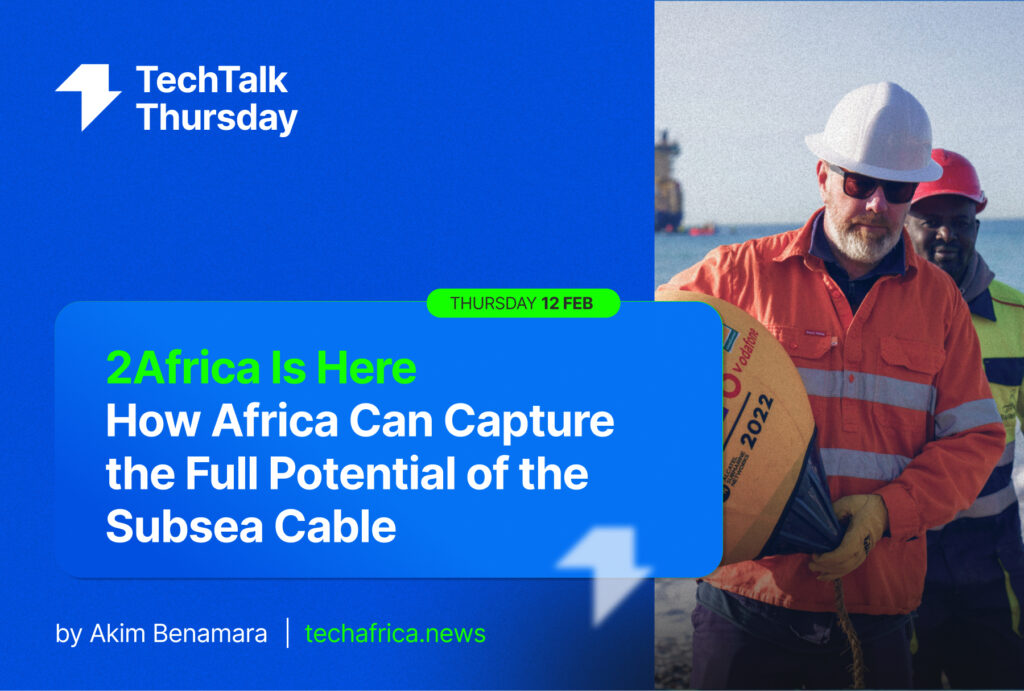GSMA on Africa’s Digital Future: Infrastructure, AI, and Policy Must Align
At the Africa Digital Parliament Summit in Lusaka, Akim Benamara, Chief Editor of TechAfrica News, sat down with Kenechi Okeleke, Senior Director Regional at GSMA, to unpack the continent’s digital potential and critical steps for inclusive progress. The three-day gathering focused on digital health and smart manufacturing, convening government officials and stakeholders from across the Pan-African Parliament. Their discussion highlighted both the opportunities and the structural gaps Africa must confront.

- 0:47Digital health, manufacturing, and policy challenges
- 3:45Infrastructure needs and investment models
- 6:02Public sector engagement and policy readiness
- 7:20AI risks, opportunities, and jobs impact
Why Digital Health and Smart Manufacturing Matter
GSMA’s current agenda places digital health and smart manufacturing at the core of its Africa strategy. According to Okeleke, the region has vast potential in both sectors but continues to lag behind.
“For example,” he explained, “digital technologies can help address many of the challenges that the healthcare sector currently faces.”
On manufacturing, Okeleke pointed to statistics that underline the urgency: “Africa accounts for about 1.9% of global manufacturing output. That is really poor, but it doesn’t reflect Africa’s potential.” The focus now, he said, is “to see how Africa can step up and take advantage of the opportunities that digital technologies provide.”
The Automation Dilemma: Fears and Forward Paths
A major concern raised at the summit involved the impact of automation on jobs. “There’s a lot of concern around the impact of automation on jobs in Africa,” Okeleke acknowledged. “But from the discussions, we’ve been able to show that there is a need for reskilling and upskilling of the workforce.”
While the threat of job displacement is real, he stressed that strategic investment in human capital can prepare the workforce for transitions caused by AI and automation.
Infrastructure: The Non-Negotiable Foundation
When asked to summarise the biggest challenge, Okeleke did not hesitate: “Digital infrastructure is key. It’s pretty much the bedrock of everything we’re talking about.” Private capital has already contributed significantly to 4G and 5G rollouts and data centre development, but there is a need for more.
“We have seen a lot of private capital go into building this infrastructure—4G networks, 5G networks across Africa. Increasingly, data centers are being built, and of course, these are the kinds of infrastructure necessary to support any digital solution. So, a lot of private capital has gone in, but in reality, the investment that has been made already is perhaps—well, I would not want to say a drop in the ocean—but it is just not enough. There is need for more. And I think governments have a role to play here—and where possible, they should also invest, in collaboration with the private sector, through public-private partnerships.”
– Kenechi Okeleke, Senior Director, Regional, Social and Policy Research, GSMA
Shifting Policymaker Mindsets
The summit’s value, according to Okeleke, extended beyond policy talk. It helped close knowledge gaps.
“You could sense that there was some knowledge gap in one or two areas, but… having these conversations have helped to close that gap.” He expressed optimism that officials will return home better equipped: “They have the evidence, they have the tools… to drive change within their countries.”
Artificial Intelligence: Risk vs Opportunity
In a continent facing chronic inefficiencies, Okeleke framed AI as more of a solution than a threat.
“Africa faces so many challenges, and all of these challenges revolve around inefficiency, lack of productivity, wastage… AI can help address many of these.” He cautioned, however, against ignoring risks. Crucially, he emphasised readiness. “Up to about 90 million jobs may be affected, but… it could create another 140 million jobs. But the precondition for that is the readiness, the training, the reskilling and upskilling.”






